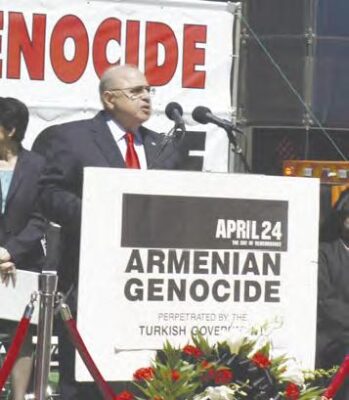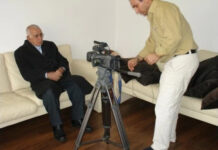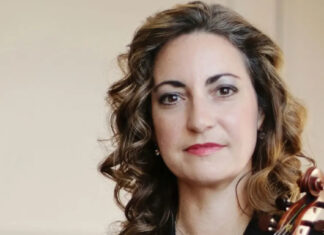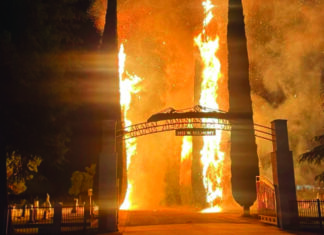The scene is in an old-fashioned dining room, decorated with antique furniture and an oriental rug. Green holly and red ribbons deck the walls and cabinets, indicating that it is Christmas. The yellowish light bulbs give the room a warmth contrasting with the darkness outside, and reflect the snow falling outside the windows.
It is American Christmas Eve in the Kezelian household, circa 1994, a festive celebration to which some 50 family and friends, Armenians and non-Armenian, were invited. As the various “aunties” cleared the tables and began washing the dishes, the kids scrambled to other rooms to play, and the middle-aged men stood around talking about the stock market or the weather or who was playing in the Rose Bowl, three elder patriarchs seated themselves at the head of the dining room table and with their after-dinner coffee (and perhaps some ghourabia or pakhlava), began the really serious discussions. Seated in the middle, that is, at the head of the table, is my grandfather, Harry A. Kezelian, Sr., known as “Papa Harry,” a genial, slightly rotund man of about 70 with a red sweater-vest and a thinning head of grey hair above his squarish-round face and thick glasses. A successful small business owner who propelled his family into the upper middle class with the dry cleaning business, he is a man of the people, but self-educated and interested in Armenian and world affairs on all levels. With his collection of National Geographic magazines and his ability to read and write Armenian, rare for someone born in Detroit, he was the one who facilitated these discussions at his and his wife’s annual Christmas Eve party at the new home in swanky Bloomfield Hills which they had purchased only five years before. It was a long way from “Zone Nine” where he had grown up and where until the age of 4 he had lived in one tiny room with his father and mother in the back of his father’s shoe repair shop. Though not educated beyond high school, he enjoyed intellectual discussions. Not only giving back to the community but being educated on its affairs, for him was one of the purposes of material success. In this aspect, he was like the character of Tevye in “Fiddler on the Roof,” who sang in “If I Were a Rich Man”:
If I were rich, I’d have the time that I lack
To sit in the synagogue and pray
And maybe have a seat by the Eastern wall
And I’d discuss the holy books with the learned men, seven hours every day,










